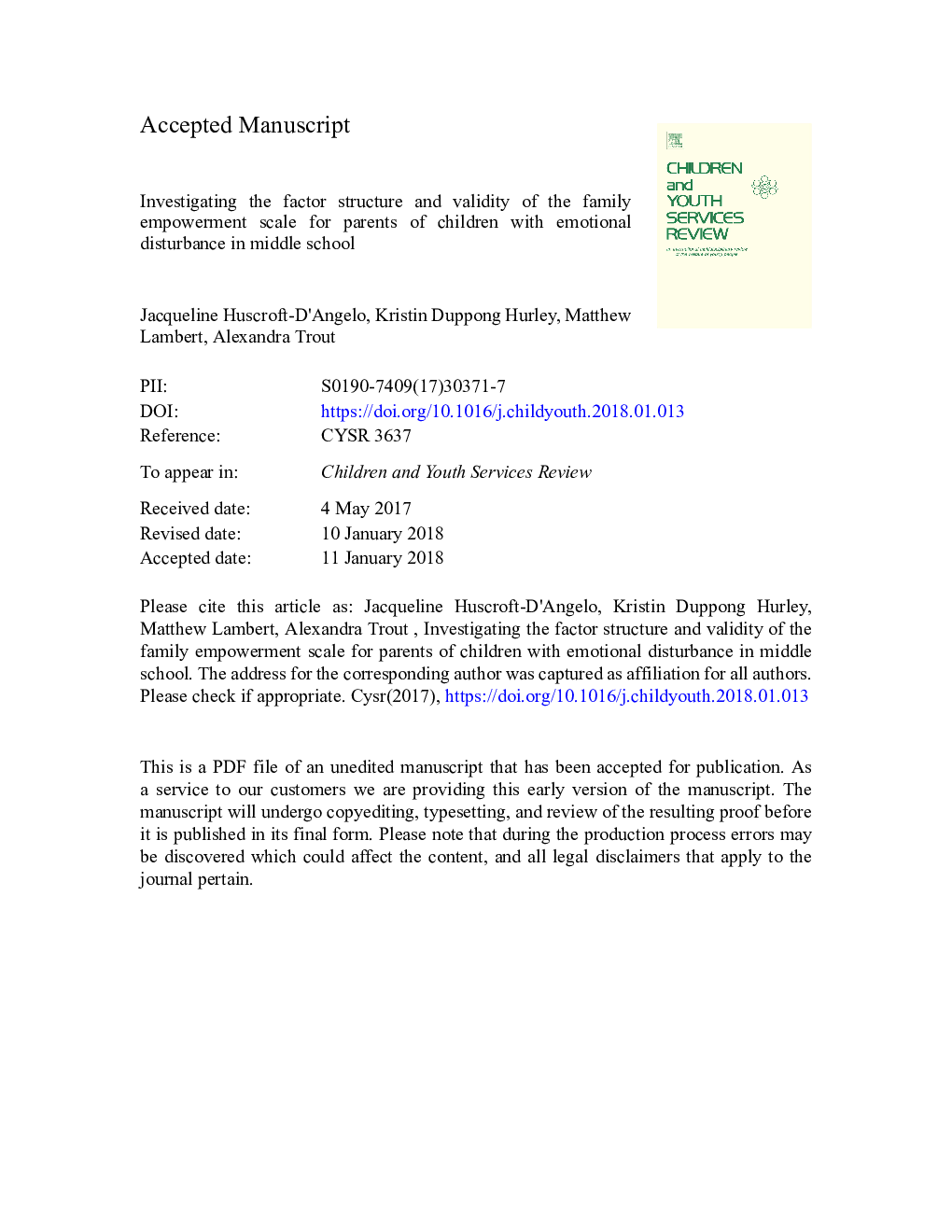| Article ID | Journal | Published Year | Pages | File Type |
|---|---|---|---|---|
| 6833323 | Children and Youth Services Review | 2018 | 37 Pages |
Abstract
Parent empowerment involves the ability of caregivers to meet the needs of their family while maintaining feelings of control and is particularly important for families of children at-risk. It is necessary to establish reliable and valid tools to measure parent empowerment. The purpose of this study was to examine the internal factor structure, score reliability, and convergent validity of the FES scores with caregivers of middle school youth who had an Individualized Education Plan for Emotional Disturbance (ED) or Other Health Impairment (OHI) due to emotional or behavioral needs. A confirmatory factor analysis (CFA) was used to examine the internal structure the FES. Score reliability was examined by computing coefficient alpha (Cronbach, 1951) for each subscale score and computing Coefficient omega and coefficient omega hierarchical for good-fitting factor models and bifactor models. Convergent validity was examined by generating composite scores for each subscale, followed by computing Pearson correlations between FES subscale scores and scores from the PAM, CGSQ and the SDQ. Results indicated that the hypothesized three-factor model fit the data adequately. FES scores were reliable based on coefficient alpha and omega, and evidence of convergent validity with measures of parent activation, caregiver strain, and child behavior were moderate to strong. The results support the use of the FES with parents of middle school youth who have ED and further validate the three factor structure identified in the initial measure development. Practical and clinical implications of these findings include support for the use of the FES with this particular group of parents.
Related Topics
Health Sciences
Medicine and Dentistry
Perinatology, Pediatrics and Child Health
Authors
Jacqueline Huscroft-D'Angelo, Kristin Duppong Hurley, Matthew Lambert, Alexandra L. Trout,
